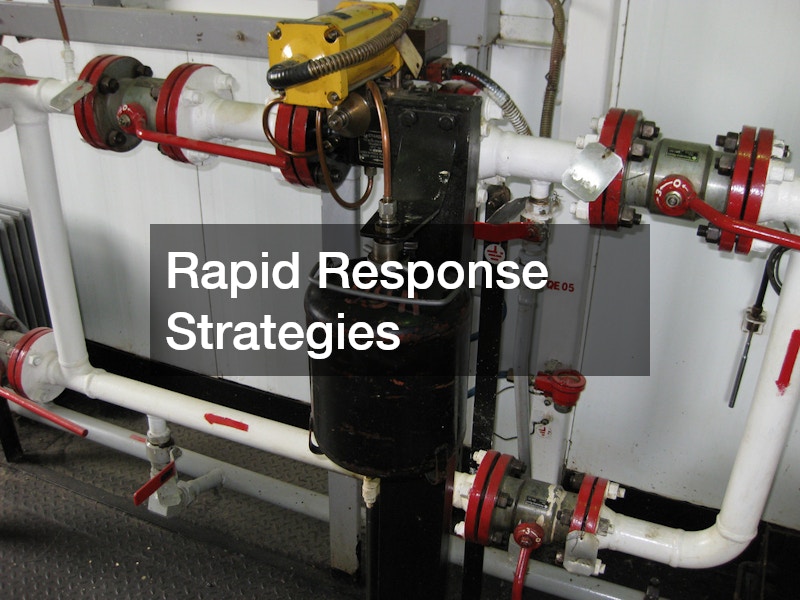
How HVAC Companies Diagnose Heating and Cooling Issues Fast
Efficient heating and cooling solutions are essential, particularly when issues arise. HVAC companies are tasked with diagnosing these problems quickly and effectively to restore comfort. This article delves into the most pressing questions consumers have about the HVAC diagnostics process and how professionals manage to resolve issues swiftly.
Common Techniques Used by HVAC Companies for Diagnostics
Use of Advanced Diagnostic Tools
HVAC professionals increasingly rely on advanced diagnostic tools to expedite the diagnosis of heating and cooling issues. Thermal imaging is one such technology that allows technicians to detect anomalies in temperature distribution within a system. Airflow meters, on the other hand, help in measuring the efficiency of air circulation, pinpointing obstructions or inefficiencies that could cause system failures.
The integration of smart diagnostic tools into the HVAC service process has significantly reduced the time required for troubleshooting. Devices equipped with sensors and real-time monitoring capabilities provide immediate feedback on system performance. Professionals utilize these tools to compare current system metrics against optimal operational benchmarks, ensuring precise identification of issues.
Technological advancements in the HVAC sector have revolutionized how companies approach diagnostics. Data from advanced tools helps in forming a comprehensive picture of system performance, aiding faster fault detection. As a result, technicians can swiftly implement targeted repairs, minimizing disruption for customers.
Importance of Regular Maintenance Checks
Regular maintenance checks play a pivotal role in the early detection of potential HVAC issues. These routine assessments help in identifying wear and tear that, if left unattended, may lead to more complicated problems. By scheduling periodic maintenance, homeowners can avoid sudden system failures that could lead to uncomfortable indoor conditions.
Maintenance checks are not only preventive but also educational for homeowners. During these visits, technicians often elicit information from homeowners about the system’s performance, helping them understand potential warning signs. This proactive communication ensures that minor issues are addressed before they evolve into larger, more time-consuming repairs.
Many HVAC companies offer maintenance plans that include regular inspections, which are crucial for extending the lifespan of heating and cooling systems. Such plans often involve cleaning filters, checking connections, and ensuring the efficient functioning of components. With these checks in place, consumers can expect quicker diagnostics, as issues are likely to be less severe and more manageable.
How HVAC Experts Identify and Solve Complex Heating and Cooling Problems
Expertise in System Components
HVAC technicians possess extensive knowledge of the various components that constitute heating and cooling systems. This expertise is essential when it comes to quickly pinpointing issues within complex mechanical and electronic frameworks. Training in the latest systems and technologies ensures that technicians are prepared to handle state-of-the-art HVAC units.
Technicians often undergo rigorous certification processes to stay abreast of the evolving technology in the HVAC industry. This continual learning enables them to expertly navigate system diagnostics and troubleshooting. Their ability to identify faults at the component level means quicker diagnosis and targeted repairs for customers.
Diagnostic Process for Complex Issues
Diagnosing complex heating and cooling issues typically involves a systematic approach honed by years of experience and training. Technicians start with a comprehensive assessment, gathering information about system performance, history, and customer-reported issues. This initial examination helps form a hypothesis, guiding subsequent investigative steps.
Once potential problem areas are identified, professionals use their diagnostic tools to delve deeper into the system’s operation. Tools like electrical multimeters or refrigerant pressure gauges provide detailed insights, confirming or refuting initial assumptions. This methodical process ensures that each potential fault is thoroughly investigated before proceeding with repairs.
How Technicians Minimize Downtime During the Repair Process
Efficient Spare Parts Management
One of the critical factors in minimizing downtime during HVAC repairs is having an efficient spare parts management system in place. HVAC companies invest in inventory systems that keep essential components readily available, reducing delays due to ordering and shipping parts. This strategic stock management ensures that repairs can commence almost immediately after diagnostics.
By maintaining a stock of commonly needed parts, HVAC professionals can swiftly replace faulty components, minimizing downtime. This preparedness is particularly beneficial during peak seasons when demand for repairs is high. Companies that prioritize inventory efficiency are often able to deliver faster service compared to those relying on external suppliers.
Rapid Response Strategies
Rapid response protocols are essential in ensuring swift service delivery by HVAC companies. These strategies typically involve having dedicated emergency teams and well-established communication networks to dispatch technicians promptly. Such protocols are crucial in meeting customer expectations for timely repairs, especially in urgent scenarios.
Many HVAC companies have adopted technology-driven solutions to enhance their rapid response capabilities. GPS tracking for technician vehicles and real-time job allocation systems help optimize response times and ensure the nearest available professional can attend to the issue. These innovations enhance service efficiency and reduce the time customers spend without functional heating or cooling.
Timely diagnosis and swift resolution of heating and cooling issues are vital to maintaining comfortable indoor environments. By leveraging advanced tools, seasoned expertise, and efficient operational strategies, HVAC professionals are adept at addressing problems swiftly, much to the relief of homeowners and businesses alike. Understanding these approaches can empower individuals to make better choices when selecting and collaborating with HVAC service providers.
